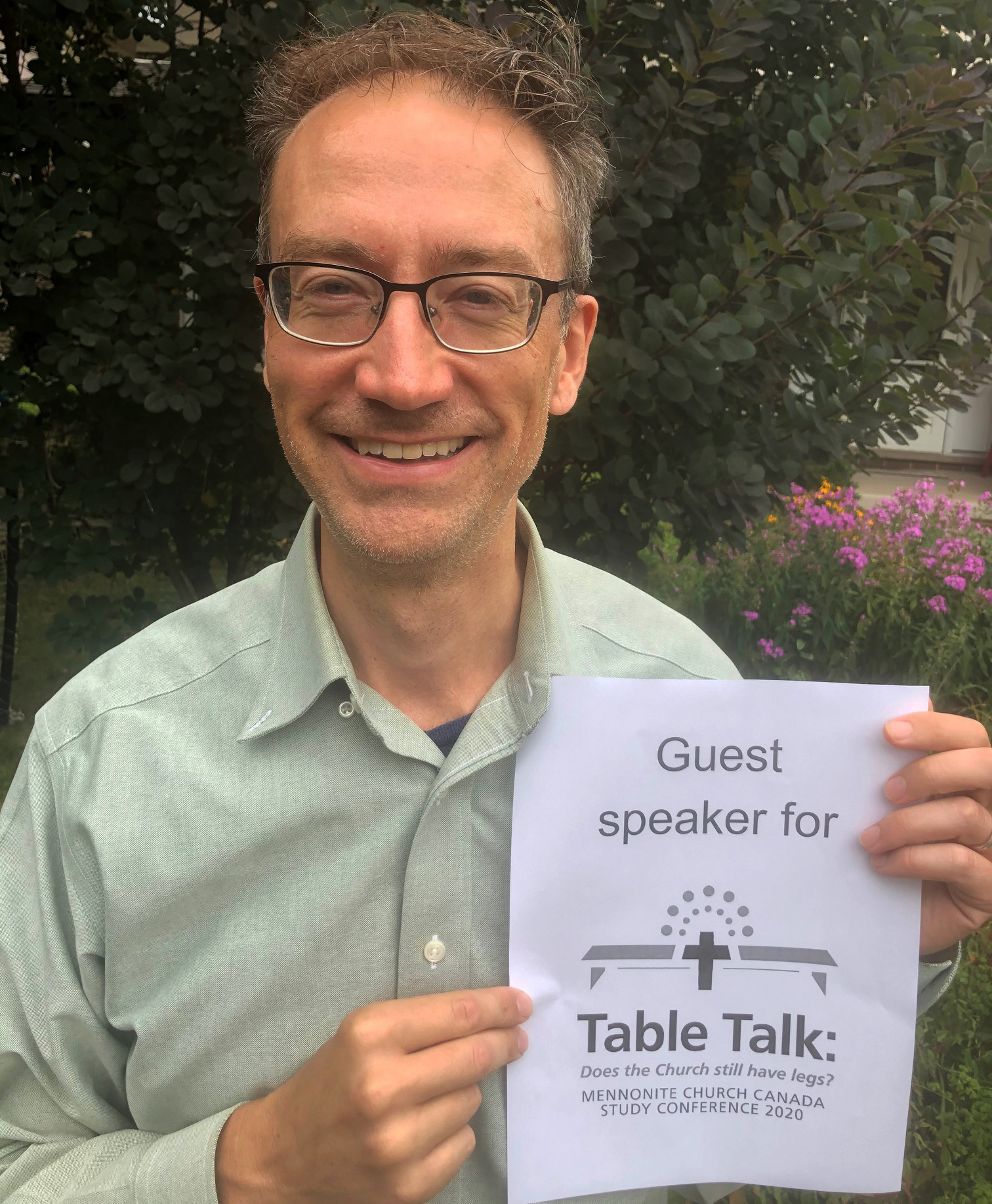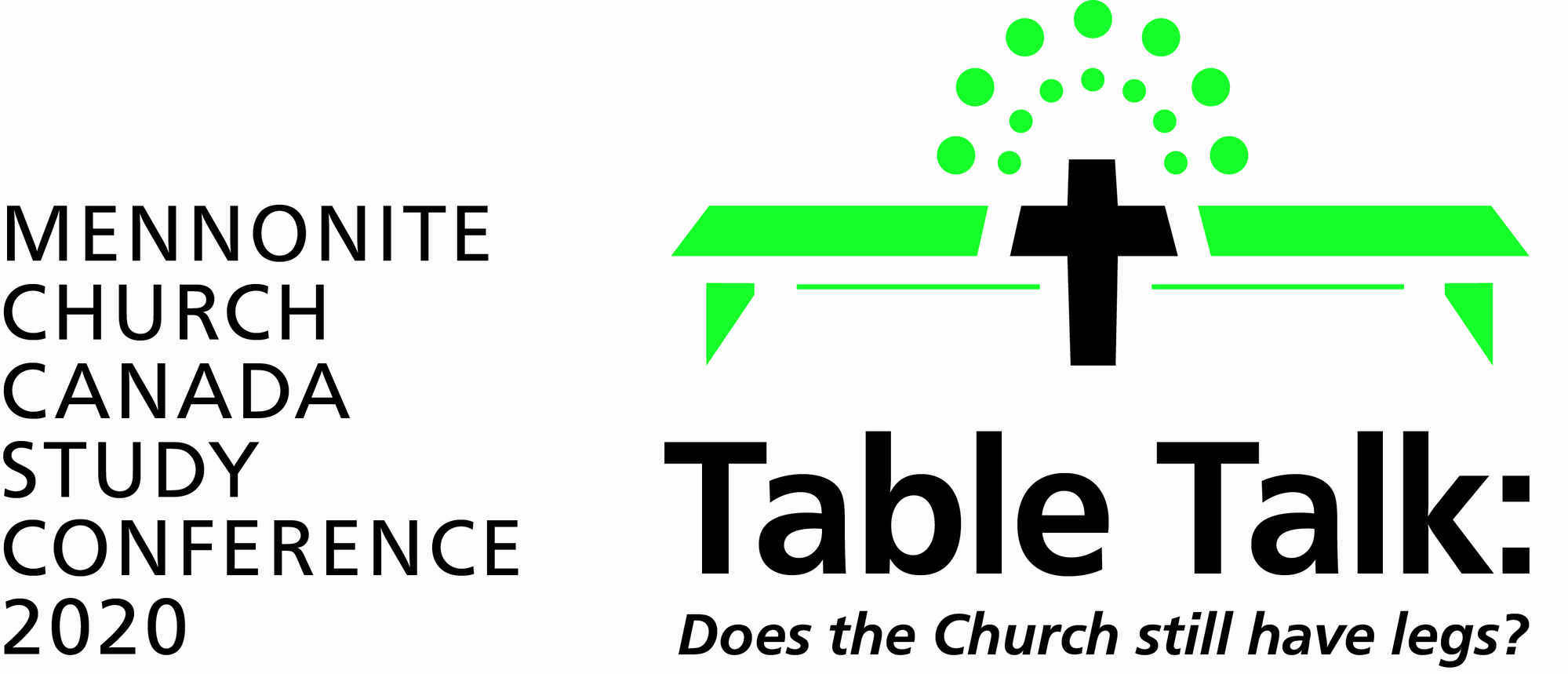October 6th, 2020Meet our Table Talk guest speakers: Jeremy Bergen
Get to know the folks who will be leading discussion at our study conference in October


Jeremy Bergen is associate professor of Religious Studies and Theological Studies at Conrad Grebel University College in Waterloo, Ont. He is one of our guest speakers for Table Talk 2020: Does the church still have legs? and will share thoughts on worship.
Briefly describe your academic journey and interests.
I have been deeply involved with the Mennonite church and its institutions for my entire life. My passion for theology was sparked at Canadian Mennonite Bible College. I believe theology can help us to reflect on Christian faith in light of ever changing circumstances and contexts. I also think theology can help all Christians notice the limits about what we as humans can say about God, and all things in relation to God. I wrote a book called Ecclesial Repentance about churches apologizing for historical wrongs and am currently working on one about Christian martyrdom and the unity of the church.
What is most compelling to you about how your work intersects with the life of the church at this moment in time?
My various research interests have coalesced around how the church continually thinks about its own identity by reflecting on its past and present. For example, as churches repent for how they have acted harmfully (such as in relation to Indigenous people or in Reformation-era violence against other Christians), new insights about what it means to be church in the world come to the surface. The same is true when churches decide to identify certain kinds of deaths as martyrdoms. At this particular moment, whether defined by the pandemic or shifting religious trends in Canada, the church continues to struggle with its identify in the midst of historical changes.
Is worship preparation for the real work of the church, or is it already the church in action? How central is it to the calling to be disciples? What are we 'doing' when we worship? Are there limits to the forms worship can take? These are big and important questions.
In your specific topic for this conference (worship), what is the most challenging truth or theme for churches to wrestle with?
In the conference, I offer some short reflections on worship, which I admit is not a theme I’ve written or spoken about very often. I think in our churches we have some very different ideas about what worship is and how it relates to the Christian life. I’m not talking about different worship styles – I think diversity of worship forms can be a strength, especially if grounded in some more basic understandings. Is worship preparation for the real work of the church, or is it already the church in action? How central is it to the calling to be disciples? What are we “doing” when we worship? Are there limits to the forms worship can take? These are big and important questions.
Do you think the church still has legs?
The church has legs because it a community convened by Jesus Christ who is present in and through the community. What that means in practice and how Jesus is encountered will vary and may be hard to see at times, but I believe this must be the starting point. In my experience, we Mennonites often emphasize the church as a human community in which there are many good and important tasks for us to do. There’s a great strength in this but also a danger of failing to notice God’s presence and activity. The centrality of Jesus is the enduring foundation of the church, even though the forms the church may take will rightly change over time.
Register for Table Talk 2020 at mennonitechurch.ca/tabletalk2020.